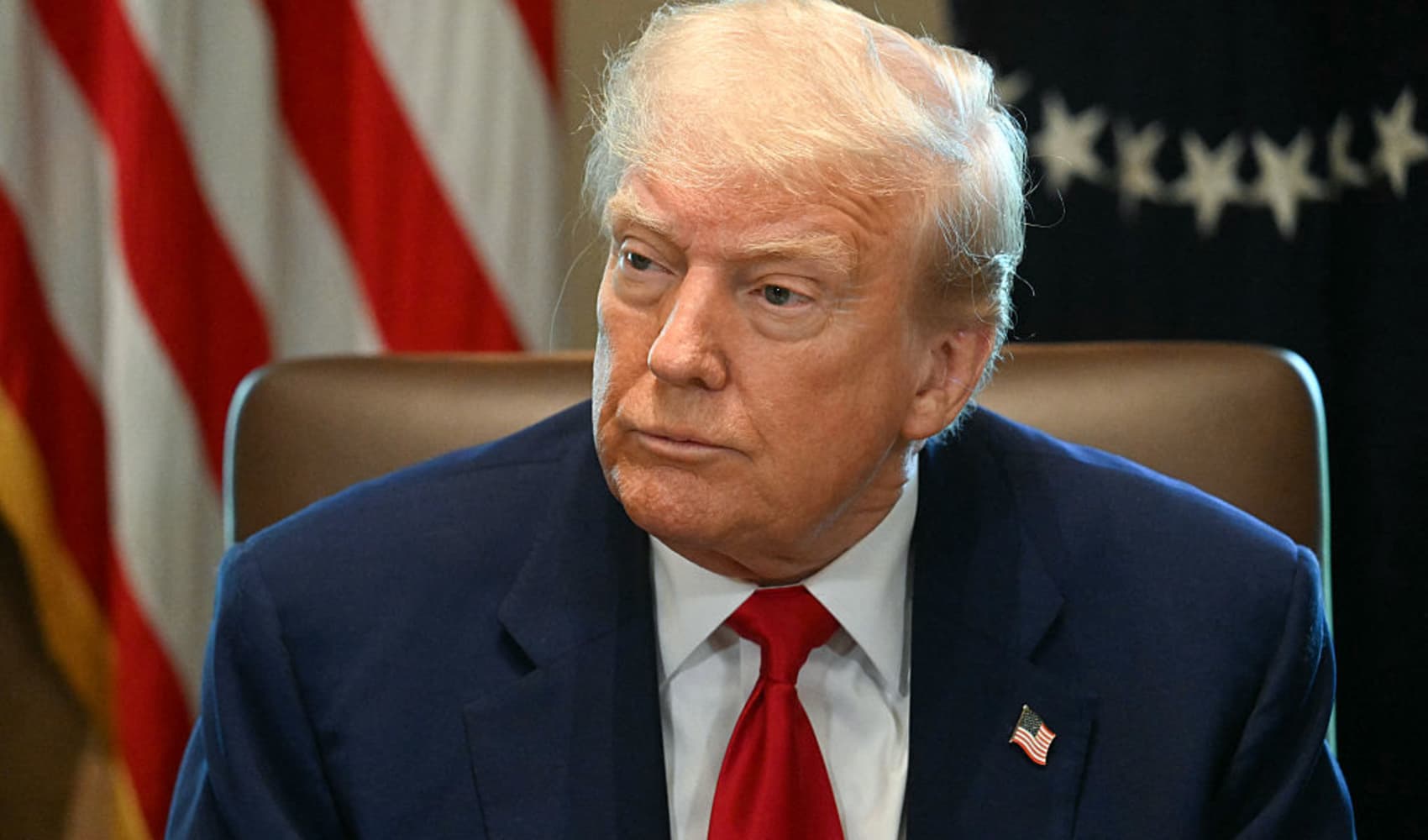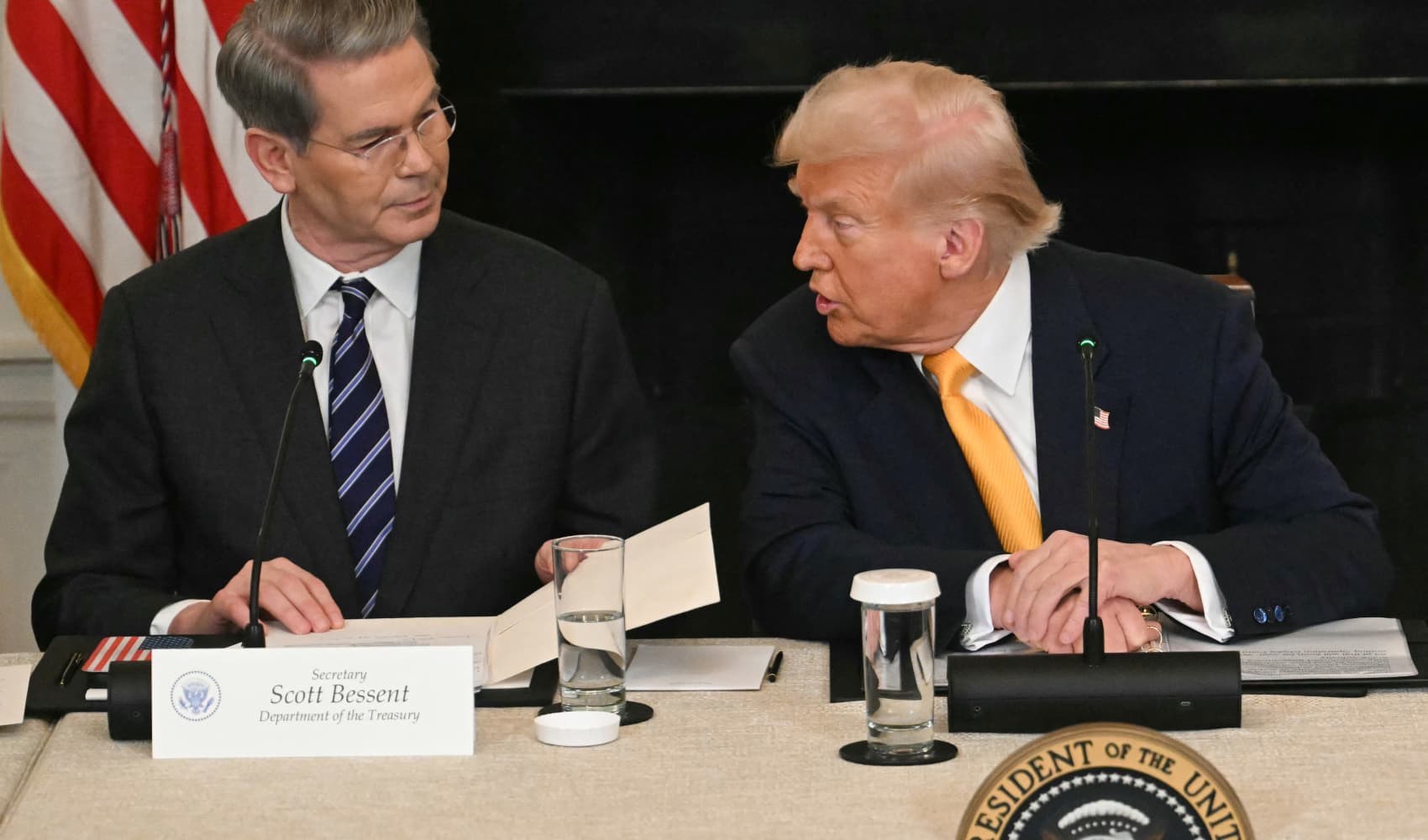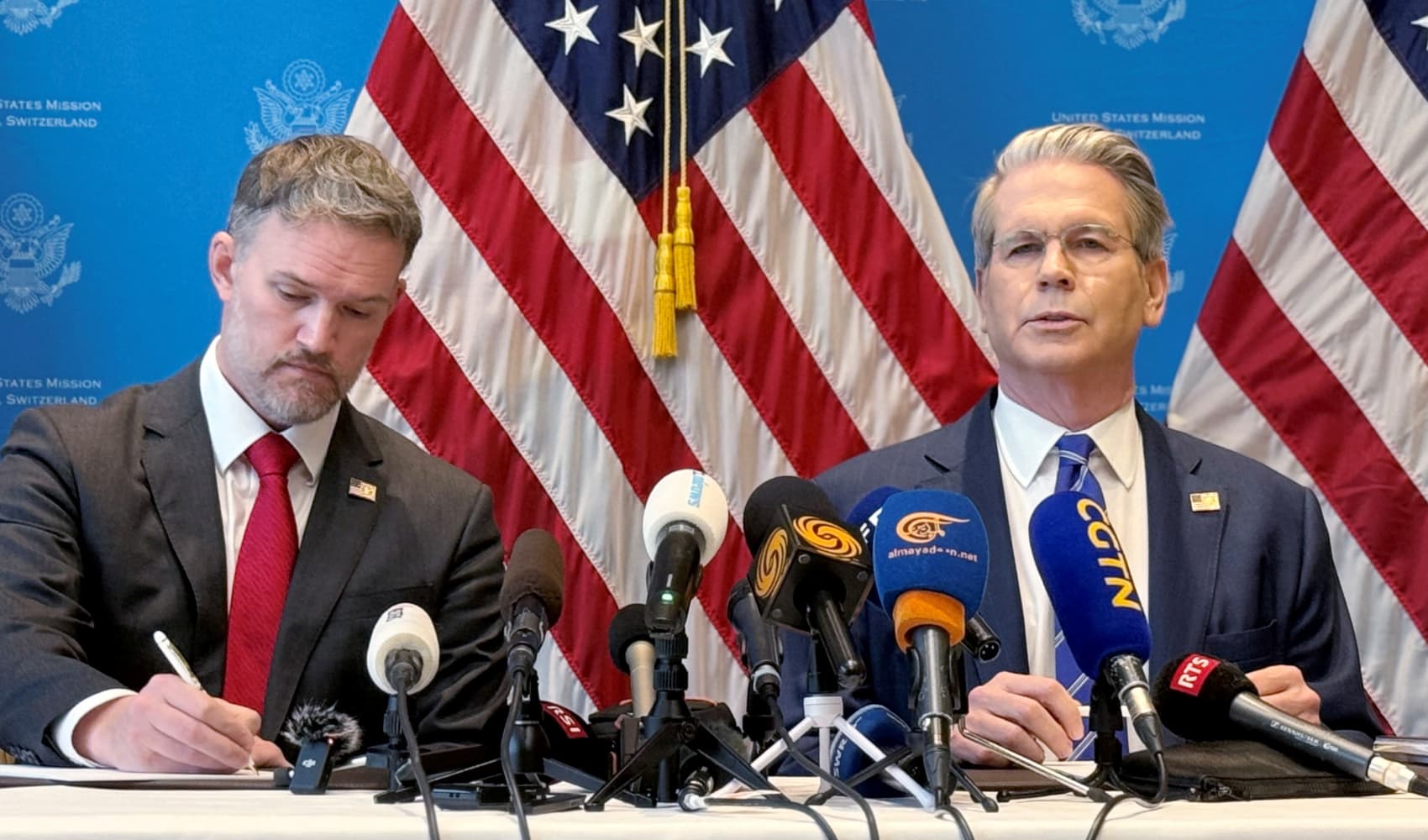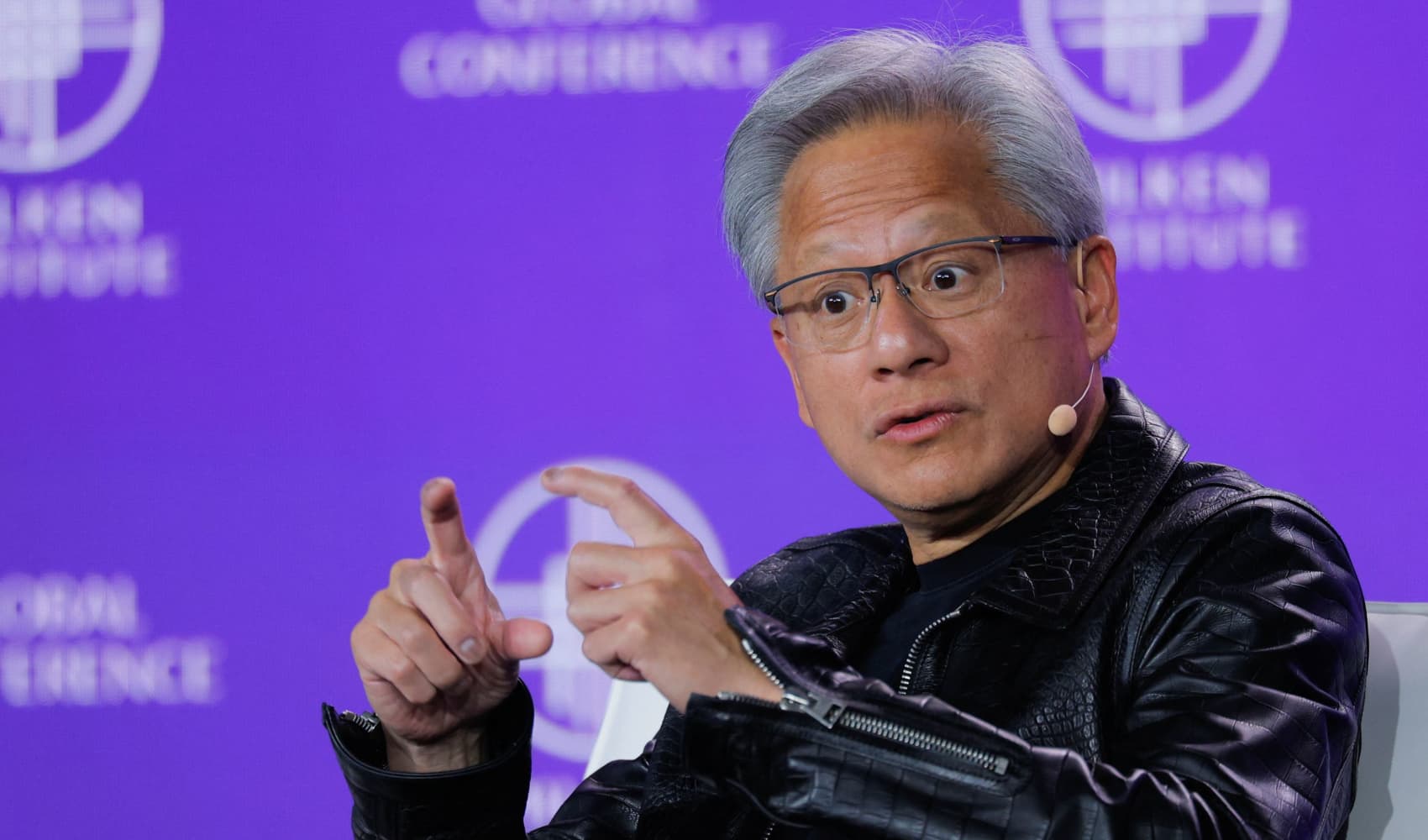Trump Accuses China: Will Trade War Hurt You?
Trump's "Chief-Ripper-Offer" Accusation: Is a Trade War with China Inevitable?
Introduction: The Escalating Trade Rhetoric
President Trump's recent remarks labeling China the "chief-ripper-offer" on trade have sent ripples through the global economy. Are we heading towards an all-out trade war, or is this simply a negotiating tactic? The stakes are high, and the impact on consumers and businesses could be significant. This article delves into Trump's accusations, the lack of confirmed direct talks, and the potential consequences of this escalating trade tension. Are we witnessing a carefully calculated strategy, or a genuine breakdown in communication? Let's unpack the details.
Trump's Stance: Defending the Tariffs
President Trump continues to vehemently defend his decision to impose significant tariffs – reportedly a 145% tariff rate – on Chinese imports. He argues that these tariffs are necessary to level the playing field and address what he perceives as unfair trade practices. But are these tariffs truly benefiting the American economy, or are they a blunt instrument that could backfire?
The "Ripped Off" Narrative
Trump's rhetoric often paints a picture of the United States being consistently exploited by other nations, particularly China. He uses strong language like "ripped off" to emphasize his point, appealing to a sense of economic nationalism. This narrative resonates with some voters who feel that past trade deals have been detrimental to American workers. But is this a fair assessment of the complex trade relationship between the two countries?
Conflicting Signals: Are Negotiations Actually Happening?
The situation is further complicated by conflicting signals from the Trump administration. While some officials have hinted at ongoing negotiations with China, the Chinese Foreign Ministry has explicitly denied that any such talks are taking place, at least regarding tariffs. This lack of clarity creates uncertainty and makes it difficult to gauge the true state of affairs.
China's Denial
Chinese Foreign Ministry spokesman Guo Jiakun's denial of tariff negotiations adds another layer of complexity. Why would China deny negotiations if they were indeed happening? Is it a strategic move, or does it reflect a genuine impasse in communication? Such denials only serve to escalate tensions and raise doubts about the prospects for a resolution.
The Economic Impact: Uncertainty and Anxiety
The ongoing trade dispute has already created considerable economic uncertainty. Businesses are hesitant to invest, and consumers are worried about rising prices. Analysts have warned that a prolonged trade war could significantly slow global economic growth. Are we prepared for the potential fallout?
Tariffs and Consumers
Ultimately, tariffs are often paid by consumers in the form of higher prices. If the cost of imported goods from China increases, retailers are likely to pass those costs on to their customers. This could erode purchasing power and negatively impact household budgets. Is this a price worth paying for Trump's trade policy?
The "Chief-Ripper-Offer" Accusation: What Does It Mean?
Trump's use of the phrase "chief-ripper-offer" is clearly intended to be provocative and attention-grabbing. It reflects his strong belief that China has been engaging in unfair trade practices for years. This kind of language is typical of Trump's communication style, but it can also be seen as inflammatory and counterproductive. Does such rhetoric help or hinder the chances of reaching a trade agreement?
Is China Really the "Chief-Ripper-Offer"?
While there is no doubt that the U.S. and China have differing perspectives on trade, it's important to consider the complexity of the relationship. China is a major trading partner, and many American companies rely on Chinese goods and services. Simply labeling China as the "chief-ripper-offer" oversimplifies a complex issue.
Alternative Approaches: Is There a Better Way?
Some experts argue that there are alternative approaches to addressing trade imbalances that would be more effective than tariffs. These include diplomatic negotiations, multilateral agreements, and targeted sanctions. Is Trump's reliance on tariffs the most effective strategy, or are there other options worth exploring?
The Power of Diplomacy
Historically, diplomacy has played a crucial role in resolving international disputes. Open and honest communication between the U.S. and China could help to bridge the gap and find common ground. However, Trump's confrontational style may make diplomatic solutions more difficult to achieve.
Geopolitical Implications: Beyond Trade
The trade dispute between the U.S. and China has broader geopolitical implications. It affects the balance of power in the region and impacts alliances with other countries. A prolonged trade war could destabilize the global economy and undermine international cooperation.
The Future of U.S.-China Relations
The current trade tensions could have long-lasting consequences for U.S.-China relations. If the two countries are unable to find a way to resolve their differences, it could lead to a more confrontational and less cooperative relationship in the future. This would have significant implications for global security and stability.
Potential Scenarios: What Could Happen Next?
There are several potential scenarios that could play out in the coming months. These include a negotiated settlement, an escalation of the trade war, or a period of prolonged uncertainty. The outcome will depend on the willingness of both sides to compromise and find common ground.
Scenario 1: A Negotiated Settlement
In this scenario, the U.S. and China would agree to a compromise that addresses some of the key concerns of both sides. This could involve China agreeing to reduce its trade surplus, improve intellectual property protection, and open up its markets to foreign investment. A negotiated settlement would be the most desirable outcome, but it may be difficult to achieve given the current tensions.
Scenario 2: Escalation of the Trade War
In this scenario, the U.S. and China would continue to impose tariffs on each other's goods, leading to a further escalation of the trade war. This could have significant negative consequences for the global economy. An escalation of the trade war would be the worst-case scenario, but it is a possibility that cannot be ruled out.
Conclusion: Navigating the Trade Minefield
President Trump's "chief-ripper-offer" accusation highlights the ongoing tensions in the U.S.-China trade relationship. The lack of confirmed direct talks and the potential economic consequences of a prolonged trade war create a complex and uncertain situation. While Trump defends his tariffs as a necessary tool to address unfair trade practices, concerns remain about their impact on consumers and businesses. Whether a negotiated settlement can be reached or the trade war will escalate further remains to be seen. The stakes are high, and the world is watching closely.
Frequently Asked Questions (FAQs)
- 1. What exactly are tariffs and how do they work?
Tariffs are taxes imposed on imported goods. When a country imposes a tariff, it increases the cost of those goods, making them more expensive for consumers and businesses to buy. This can lead to a decrease in imports and potentially encourage domestic production. Essentially, it's a tool countries use to protect their own industries and influence trade relationships.
- 2. How could the trade war between the US and China affect me personally?
The trade war can affect you in several ways. You might see higher prices on everyday goods that are imported from China, such as electronics, clothing, and toys. The uncertainty surrounding the trade war could also lead to slower economic growth, which could impact job opportunities and wages.
- 3. What are some potential alternatives to tariffs in resolving trade disputes?
Instead of tariffs, countries can use diplomacy, negotiate trade agreements, or impose targeted sanctions. Diplomacy involves direct talks and negotiations to find common ground and address concerns. Trade agreements can establish clear rules and regulations for trade. Targeted sanctions can be used to penalize specific individuals or entities without affecting the broader economy.
- 4. What does it mean when Trump calls China the "chief-ripper-offer"?
When Trump uses the term "chief-ripper-offer," he is accusing China of taking advantage of the United States in trade. He believes that China has been engaging in unfair trade practices that have harmed American businesses and workers. It's a strong and provocative statement meant to emphasize his dissatisfaction with the trade relationship.
- 5. Are any countries benefiting from the trade war between the US and China?
Yes, some countries can benefit from the trade war as businesses seek alternative sources of supply. Countries like Vietnam, Mexico, and India could see an increase in exports as companies shift production away from China to avoid tariffs. However, the overall impact on the global economy is generally negative due to increased uncertainty and disruptions to supply chains.




